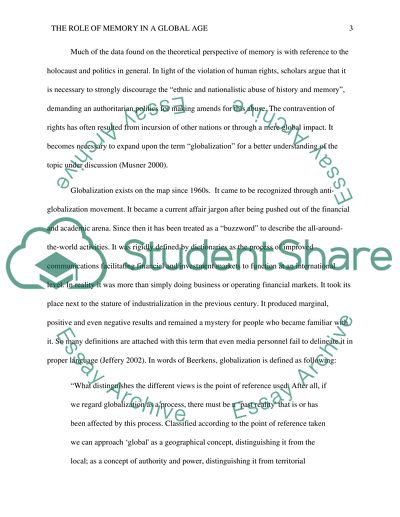Cite this document
(“What is the role of memory in a global age Critically discuss the Essay”, n.d.)
What is the role of memory in a global age Critically discuss the Essay. Retrieved from https://studentshare.org/sociology/1592027-what-is-the-role-of-memory-in-a-global-age-critically-discuss-the-argument-that-wider-processes-of-globalization-have-generated-new-forms-of-memory
What is the role of memory in a global age Critically discuss the Essay. Retrieved from https://studentshare.org/sociology/1592027-what-is-the-role-of-memory-in-a-global-age-critically-discuss-the-argument-that-wider-processes-of-globalization-have-generated-new-forms-of-memory
(What Is the Role of Memory in a Global Age Critically Discuss the Essay)
What Is the Role of Memory in a Global Age Critically Discuss the Essay. https://studentshare.org/sociology/1592027-what-is-the-role-of-memory-in-a-global-age-critically-discuss-the-argument-that-wider-processes-of-globalization-have-generated-new-forms-of-memory.
What Is the Role of Memory in a Global Age Critically Discuss the Essay. https://studentshare.org/sociology/1592027-what-is-the-role-of-memory-in-a-global-age-critically-discuss-the-argument-that-wider-processes-of-globalization-have-generated-new-forms-of-memory.
“What Is the Role of Memory in a Global Age Critically Discuss the Essay”, n.d. https://studentshare.org/sociology/1592027-what-is-the-role-of-memory-in-a-global-age-critically-discuss-the-argument-that-wider-processes-of-globalization-have-generated-new-forms-of-memory.


